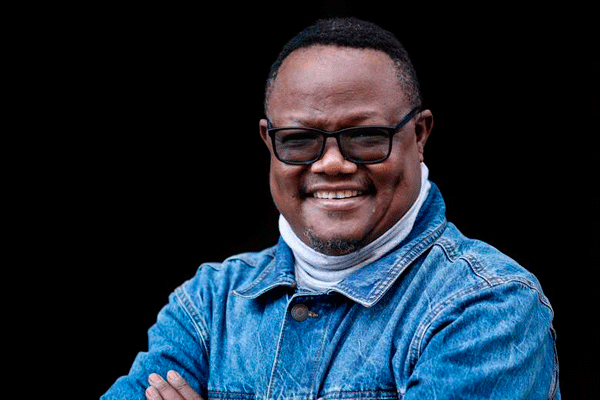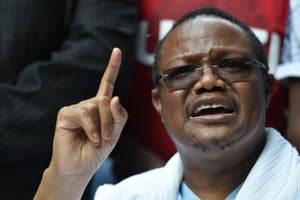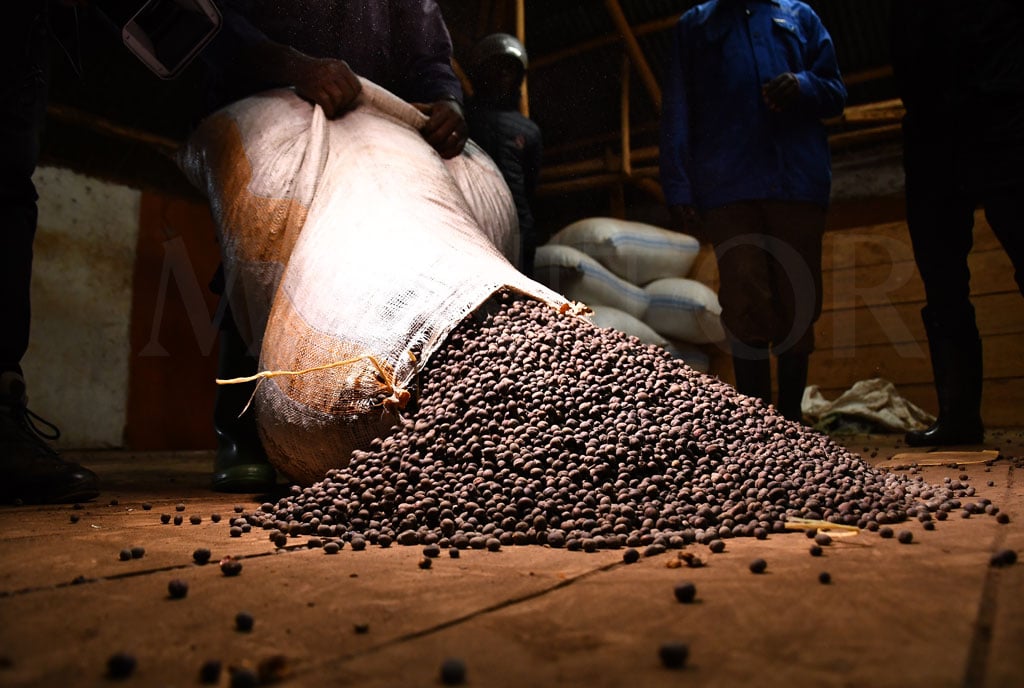
Tanzania opposition Chadema vice chairman Tundu Lissu during an interview at Nation Centre in Nairobi on October 29, 2024. PHOTO/NMG
Tanzanian opposition leader Tundu Lissu says his country’s citizens have the biggest task to end impunity and police brutality by electing the right leaders.
Lissu, the vice chairperson of Chadema, said electing good leaders was the first step in addressing the enduring issue of human rights violations.
He was speaking in Nairobi on Tuesday as Tanzania prepares for municipal elections in November against a backdrop of abductions, torture and arbitrary arrests of opposition leaders and civil society activists. The police have been blamed for the incidents, but have denied responsibility.
“If the government is not taking action, we the people should take action and elect a government that will take care of people’s interests,” Mr Lissu said.
He said the citizens needed to examine the reasons and factors behind the kidnappings with a view to reforming Tanzania’s legal system to prevent such occurrences.
“Other than electing another government, we need to ask ourselves what has contributed to these heinous crimes by the government. What kind of environment has contributed to police kidnappings and brutality, because you can elect another government only to realise that it is worse than the previous one. If the citizens have a right to life, killings of this nature should be thoroughly investigated under our Constitution, laws and legal frameworks.
“We should also interrogate circumstances under which our security apparatus operates with the aim of putting an end to it.”
Mr Lissu condemned the kidnappings and enforced disappearances of Tanzanians.
President Samia Suluhu Hassan has also condemned the crimes, but asked foreign diplomats to steer clear of the issue as investigations continue.
Mr Lissu has been a victim of attacks by suspected security agents. In 2017, he survived an assassination attempt that left him hospitalised abroad for months, first in Kenya and later in Belgium. His attackers have never been identified or arrested.
On Tuesday, Mr Lissu said the current abductions and disappearances of citizens were illegal and against the universal human rights.
Last week, his Chadema party said its women's wing publicity secretary, Aisha Machano, had been abducted in the eastern town of Kibiti town while she was on official duty. Unidentified people abducted, beat and seriously injured Machano before dumping her in a forest, a month after another party leader was kidnapped and murdered.
The reported cases could tarnish the reformist image of President Suluhu, who has been praised for easing repression since succeeding John Magufuli, who died in office in 2021.
“We are not surprised that the government of Tanzania is yet to take action against reported cases of kidnappings. People have been disappearing for a long period now, since 2015 during President Magufuli's tenure,” Mr Lissu said.
“The government should ensure that its security apparatus are not used to brutalise its own citizens whether in Tanzania, Kenya, USA or Russia. This is because our internal laws do not permit kidnappings of citizens.”
Machano is the second senior opposition official to be abducted and tortured within two months.
Ali Kibao, a member of Chadema's secretariat, was abducted from a bus by armed men early last month while travelling from Dar es Salaam to the coastal city of Tanga.
Chadema organised demonstrations against Kibao's killing and the abductions and disappearances of individuals and opposition party officials in Dar es Salaam, but the police blocked them.







